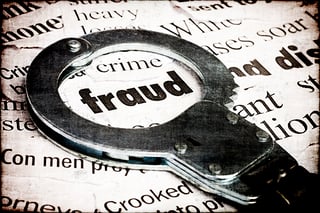 Honesty between you and your attorney is paramount when disclosing information about your estate. As Dr. Kent M. Keith says in his book Anyway: Paradoxical Commandments for Christians, “Honesty and frankness make you vulnerable. Be honest and frank anyways”.
Honesty between you and your attorney is paramount when disclosing information about your estate. As Dr. Kent M. Keith says in his book Anyway: Paradoxical Commandments for Christians, “Honesty and frankness make you vulnerable. Be honest and frank anyways”.
According to 18 U.S.C. §152(1), A person who…knowingly and fraudulently conceals from a…trustee…charged with the control of property, or, in connection with a case under title 11, from creditors or the United States Trustee, any property belonging to the estate of the debtor;…shall be fined…imprisoned…,or both.
Huh? Well, in not so many words, this is saying don’t conceal information. If you knowingly and fraudulently conceal information, it’s possible you will be fined or thrown in prison. In order to prove someone concealed property from their bankruptcy petition and should be prosecuted for it, the government has to show: 1. the bankruptcy proceeding was in existence, 2. the defendant fraudulently concealed the information from the Trustee, and 3. the property belonged to the bankruptcy estate.
Proving the bankruptcy proceeding was in existence is likely the easiest element to prove of the three. Essentially, the government will have to prove your case has been initiated. To do so, the government will simply make a showing your case has been filed with the court.
In order to prove someone fraudulently concealed information, the government will have to prove the person in question intended to conceal information from the court. Concealment means more than physically hiding something. Concealment can include failing to disclose information regarding assets when, at the time of certifying a statement, the individual knew the existence of such assets. Put in plain language, if the government can show an individual purposefully hid information with the intent to cover up the existence of property, the second element might be satisfied. By way of example, if Tom files his bankruptcy but knows he has $20,000 in a savings account and purposefully doesn’t tell his attorney about it, then his case if filed with, and Tom fails to inform his attorney, the Trustee, or the court about the savings account, he may be prosecuted for concealing information.
Lastly, the property in question must belong to the bankruptcy estate. After your bankruptcy case is filed, all of your property becomes property of the estate until you receive your discharge. So, once someone files their case, any property that is owned by the debtor at the time of filing is property of the estate. Ownership means more than legal ownership. This can include having an equitable interest in property, and can even include property the debtor is entitled to receive. For example, if you know you are going to inherit property from someone who recently passed away, the property is likely deemed property of the bankruptcy estate after your case is filed.
If the government chooses to prosecute someone for concealing information from their bankruptcy, and the person is found guilty, the individual may be fined, imprisoned, or both. This language speaks for itself and the law is pretty clear on this. If you purposefully hide information from your bankruptcy petition, you may be prosecuted. If you’re prosecuted by the government and found guilty, you may be fined, imprisoned, or both.
Easiest way to prevent any of this from happening is by disclosing all of your property to your MN Bankruptcy Attorney. Sometimes clients will fail to disclose all of their property out of fear their property will be taken away from them through the bankruptcy. This typically doesn’t happen, but yes, I suppose it is possible in some cases. However, fraudulently concealing information from your bankruptcy will create more problems than one will want to face. If you fully disclose your property to your MN Bankruptcy Attorney, your attorney will be able to apply the law to its fullest extent. Now, I cannot guarantee you we will be able to protect everything you have, but keep your eye on the prize. You are contemplating bankruptcy because you need a fresh start. A fresh start is exactly what bankruptcy can provide you. A fresh start doesn’t mean everything will be perfect, but you will likely be in a much better place financially after your case is filed. Our MN Bankruptcy Attorneys are well-qualified to assess your situation and find the solution that best fits your needs.
If bankruptcy is the best option for you, our MN Bankruptcy Attorneys will do everything in their power to help you get your life back. In order to accomplish this, however, we ask for complete disclosure when assisting you with your case. We don’t concern ourselves with the possibility of clients concealing information because we trust our clients. Our working relationship is built on trust and we know that by working together we can achieve the outcome our clients are looking for.
Concealing information about assets in bankruptcy is a big deal when it happens. With that being said, there’s no reason to conceal information when discussing your situation with our MN Bankruptcy Attorneys. We don’t judge you, we help you get your life back. In order to help you get your life back, though, we must be honest with each other.
After reading this blog you will hopefully have a better understanding of what the impacts of concealing information from your bankruptcy really are. When someone chooses to conceal information they are taking a very big risk. Mentioning the possibility of criminal prosecution is not meant to be a scare tactic, but to show those contemplating bankruptcy the potential result if someone chooses to conceal information.
Please reach out to our MN Bankruptcy Attorneys if you have any questions about this. We promise to answer any bankruptcy questions you have and will do everything in our power to help you get your life back!


